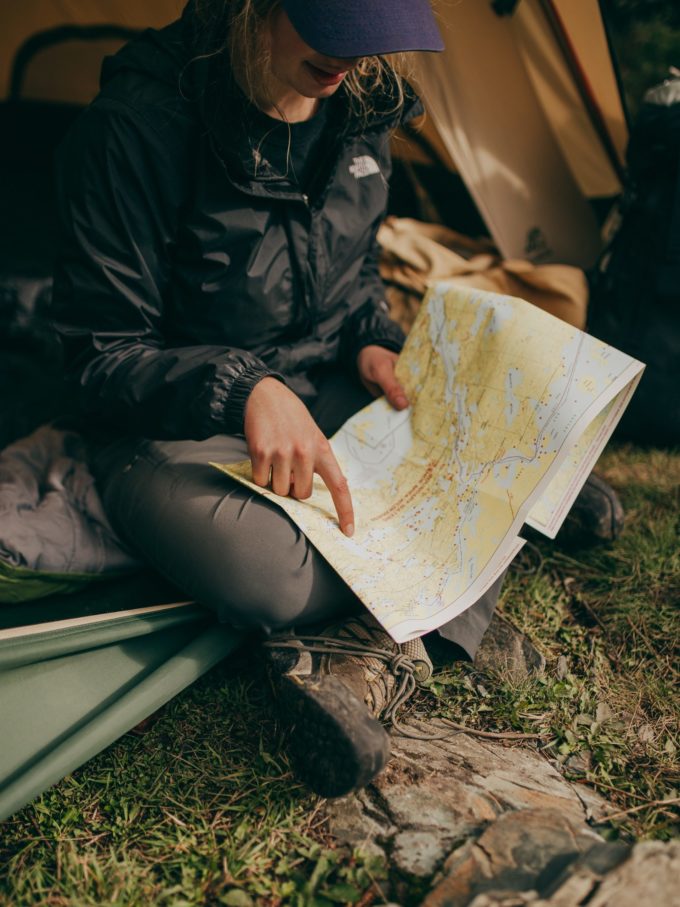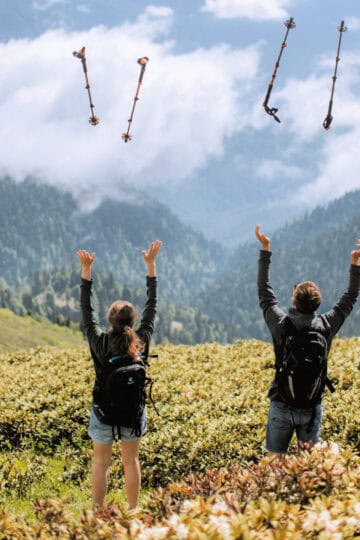Camping is a wonderful adventure and a great way to get away from the city and everyday life. If you've never been truly away from city lights, you will be astonished to discover just how many stars there are at night. Check out these Health and Safety Tips for First-Time Campers and ensure that you enjoy your first time camping while staying safe and healthy! And if you need more tips, check out The Expert Camper.
Photo by Vlad Bagacian from Pexels
Health and Safety Tips for First-Time Campers
Lyme Disease Awareness
One primary concern for all campers, but especially for novice ones, is the risk of contracting a tick-borne disease called Lyme disease. It's primarily carried by two species of black-legged ticks. These insects attach themselves to the skin, often in hidden places like the groin, underarm, or scalp. They then proceed to feed on their host.
It takes about 36 hours of direct contact with the tick for it to transmit the disease. If a tick is discovered and removed before that time, then the transmission is unlikely. That's why it's important to be vigilant and watch out for these dangerous insects when you're in any kind of wooded outdoor environment. If you think a tick bit you, always seek medical advice and get a Lyme disease test after camping.
If you spot a tick, remove it immediately. Never use your fingers. Use tweezers, and be sure to extract the whole intact body and head. Then dab the area with alcohol or some other kind of disinfectant. If you have any doubts about how long the tick was attached, seek testing right away.
Lyme disease is serious. Left untreated, it can result in chronic illness with symptoms like nerve and joint pain, brain and spinal cord inflammation, headaches and stiff neck, dizziness, shortness of breath, and facial palsy.
Photo by Nathan Moore from Pexels
This post may contain affiliate links which means we receive a small commission at no cost to you when you make a purchase. As an Amazon Associate I earn from qualifying purchases.
Bring Proper Supplies
If you're camping for the first time, you will want to be sure to bring the correct items for your health, safety, and comfort. These include:
- First aid kit with tweezers and antiseptic
- Lanterns and flashlights
- Tents of adequate size
- Sunscreen, insect repellent, and lip balm
- Prescription medication
- Appropriate clothing and footgear
- Food, cooler, stove, and fuel
- Water if the campground doesn't have it
- Toiletries
Here are some other health and safety tips for first-time campers:
- Be familiar with your equipment
Make sure you know how to pitch your tent and operate stoves and lanterns. Practice at home first.
- Be aware of your surroundings
Ticks can be in or out of season depending on temperature, time of year, and where you are actually camping. Take notice of any threats, large or small. If you plan on doing long forest hikes or spending time in thick brush for flower foraging remember to wear long sleeves and to always check your extremities after.
- Make a list of everything you will need
Ahead of time, make a checklist of all the items you will need to bring with you. Check each item off before you go. Don't trust this to memory. You will not be able to run home if you forget something important.
- Stick close to home
Photo by Josh Hild from Pexels
Choose nearby camping grounds for your first time. You may find that camping isn't for you, especially camping in cold weather environments. You may fail to bring enough food. You may forget a critical item. If these things happen, it's best to wrap it up and get home quickly.
- If you have an RV, make sure you can operate it
Photo by Amanda Klamrowski from Pexels
Ensure you can safely control the RV ahead of time—practice backing up until you are proficient.
- Be aware of the weather
First-time campers should avoid severe weather and its aftermath. Don't go if it's pouring rain or very cold or hot. After a significant rain, campgrounds may be slippery and muddy. Wait until the conditions are better.









Leave a Reply